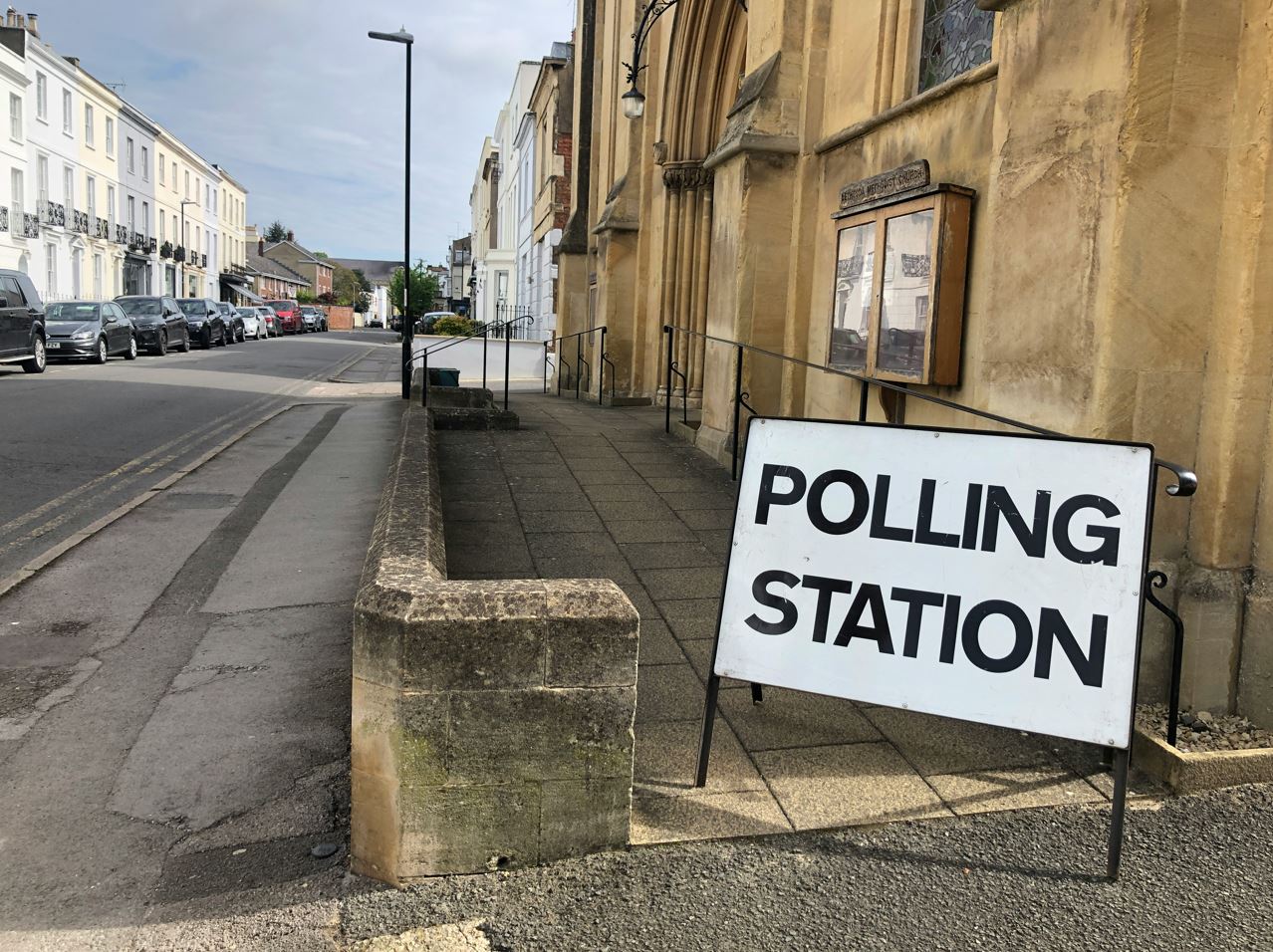How the economy affects the outcome of elections – and what this means for Rishi Sunak and Keir Starmer
The Budget post-match analysis has included plenty of speculation over whether, and how far, it will help the Conservatives in their uphill battle to win the coming general election. Will economic growth pick up before the government’s time runs out? If not, could the Conservatives repeat the surprise of 1992 and be re-elected in a recession? And if tax is the battleground, will that help the Conservatives or Labour?
Given all that, I thought it would be interesting to take a step back and see what we can learn from the historical data on the link between the economy and elections.
The best starting point is the work of the American academics Christopher Achens and Larry Bartels. They have studied decades of data on elections in the United States and concluded that the economy plays a crucial role in them – but not in the way that you might think.
When comparing a range of economic indicators with subsequent election results, they find that voters do not appear to reward a government for strong economic performance over its term of office, be it in terms of GDP growth, inflation, deficit reduction or any other metric. Neither do voters appear to make a relative judgment, rewarding or punishing a government for doing better or worse than its counterparts internationally. Nor do they appear to make a forward-looking judgment on which party’s policies would be best for them personally or for the country.
In reality, Achen and Bartels find that the link between the economy and voting is short term and personal. Most voters have got more important things to do than follow closely the debates over the parties’ economic records or economic policies. To the extent that voters focus on the economy, they tend to look at how current economic conditions at the time of the election are affecting them personally.
This means that some of the metrics to which economists and journalists pay lots of attention can be poor guides politically. For example, GDP might be rising overall but the benefits of this growth might be concentrated among a small group of voters. Or unemployment rate might be high but the average voter in a job might actually be doing quite well. Inflation might be falling but, if wages are stagnant, voters may not feel better off.
Instead, the economic indicator with the most significance politically is whether the disposable income of the median household is rising or falling in the six months before voters go to the polls. If it is rising, the incumbent government has a good chance of being re-elected. If it is falling, the opposition party has much the better chance.
This in turn shapes the type of campaign that it makes sense for each side to fight. In her classic work, ‘The Message Matters: The Economy and Presidential Campaigns’, Lynn Vavreck writes that the side that is favoured by the economic fundamentals tends to fight a ‘clarifying’ campaign, drawing attention to the economic situation (Vavreck 2009). At a time of relative prosperity, it is the incumbent that will focus on the economy and seek to claim credit for what is going well (as President Biden is currently doing). At a time of economic hardship, it is the opposition that will major on the economic fundamentals (‘It’s the economy, stupid’ as James Carville famously reminded his team when Bill Clinton sought to dislodge the Republicans in 1992).
In response, the other side in an election has a tough task. It must fight an ‘insurgent’ campaign, either seeking to change the subject away from the economy, as Donald Trump is currently trying to do with his focus on cultural and social issues and the President’s age or, alternatively, by accepting the terrain of the economy but trying to undermine the credibility of the clarifying campaign.
How far does this apply in the UK?
In the UK, the Office for National Statistics publishes data on median household disposable income going back to 1977. Since then, there have been eleven general elections and in all but three of them the result was in line with what the above research would suggest. Governments have generally been re-elected when median income was rising in the run-up to the election and defeated when it was stagnant or falling.
The three exceptions were 1979, 1992 and 1997. What can we learn from them?
In 1979, the general election took place at the top of the economic cycle and median household income was rising, which ought to have been good news for James Callaghan’s Labour government, but the election took place in the immediate aftermath of the ‘winter of discontent’ when crippling strikes had seriously damaged Labour’s economic credibility. The Conservatives under Margaret Thatcher were therefore still able to fight the election on the basis of the economy, with a manifesto attacking Labour’s record and pledging that the Conservatives’ first task (of five) would be “to restore the health of our economic and social life”.
In 1992, John Major’s Conservative government was re-elected against the odds in a time of recession – and again an attack on Labour’s economic credibility was key to its success. The Conservatives’ private polling found that taxation was a highly salient issue for voters and that sixty per cent of people thought that Labour would put direct taxes up. The Tories costed Labour’s spending plans at £35 billion and used that to mount a highly effective attack that voters would face a £1,000 a year ‘tax bombshell’ under a Labour government. Even though voters were being hit by falling incomes during the recession, the Conservatives were still able to fight a winning campaign on the basis that Labour would make them even worse off (Butler and Kavanagh 1992).
In 1997, the economy was growing strongly and John Major’s Conservatives fought a classic clarifying campaign (‘Britain is booming. Don’t let Labour blow it’) but they lost in a landslide to Tony Blair, who fought an insurgent campaign focused on a desire for change after 18 years of Conservative government and the massive disparity in popularity between Blair and Major. Yet even in 1997, the economy played a part. The Conservatives had lost their reputation for economic competence after the UK’s exit from the Exchange Rate Mechanism on Black Wednesday in 1992 and had never recovered it. Meanwhile Labour engaged in a relentless reassurance strategy, seeking to demonstrate that it could be trusted on the economy, repeatedly pledging no return to the policies of the 1970s and making specific commitments to stick to the Conservatives’ spending plans and not to raise income tax (Gould 1998).
But although the overall finding about the relationship between the economy and elections does seem to hold in the UK, there is one difference on this side of the Atlantic that we need to take into account. US presidential elections are essentially a two-horse race so we are just looking at two binary questions: is the disposable income of the median household rising or falling; and is the election won by the incumbent or opposition party? In the UK, on the other hand, the share of the vote won by smaller parties has been rising since the 1970s so we cannot assume the relationship that we have observed to date will continue to be a straightforward one. For example, if household incomes are falling, the Conservatives are likely to lose votes, but Labour will not necessarily reap all the benefits if some of them switch to other parties instead.
What this means for the coming election
There are lessons in all this for both Rishi Sunak and Keir Starmer as they approach the coming general election.
For Sunak, the picture is more mixed than might be assumed given the Conservatives’ poor polling and the heavy public focus on the cost-of-living crisis. Median household income did indeed decline in 2022 following Russia’s invasion of Ukraine and the sharp rise in energy prices that it caused. But the ONS has not published comparable official data since then and the figures that are available suggest a complex picture. We know that in recent months wages have risen faster than prices, though it is not yet clear if this will continue and if it will outweigh the effect of more people coming off the cheap fixed rate mortgages that they had enjoyed prior to the war in Ukraine.
This would appear to leave Sunak with two options. He could bide his time and hope that household incomes rise over the spring and summer. This is not an outlandish hope, and here I think the best comparison is not 1992 but 2015. Ed Miliband went into the 2015 election arguing that “the recovery hasn’t reached the kitchen tables of working families” (Labour 2015). But after several years of poor economic performance, living standards in fact rose strongly in the run-up to the 2015 election and contributed to the Conservatives’ unexpected overall majority. Furthermore, the Conservatives under David Cameron strongly attacked Labour’s economic credibility, blaming them for the pre-2010 financial crisis and arguing that the party could still not be trusted. This appears to have had a marked effect. Edward Fieldhouse and colleagues found that in 2015 Labour actually did worse than if voters were simply making a short term judgment on the improving economy. Perceptions of Labour’s lack of economic competence carried over from the 2010 election and indeed worsened, as voters blamed Labour for running up too much debt before the crisis and for failing to have a clear plan to cut the deficit afterwards (Fieldhouse et al 2020). Sunak might therefore hope that in the autumn he could win a clarifying campaign based on an improving economy, tied to risk message that Labour cannot be trusted on the issue, given how recently Jeremy Corbyn and the hard left had control of the party.
Sunak’s other option, if the economy does not come good, is to fight an insurgent campaign based on social and cultural issues such as immigration. This might have some appeal given that the Tories’ resounding victory in 2019 was thanks to a coalition of voters who would not normally have come together but who were attracted by a non-economic message (‘Get Brexit Done’). However, this is likely to be a very difficult trick to pull off again. For a start, as the electoral salience of Brexit has declined, the Conservatives’ 2019 voter coalition has fractured and its constituent parts have moved in different directions, to Labour on the left and to Reform on the right. Brexit aside, these voters want very different things. For example, recent research from Helm Partners found that in the run-up to the Budget, Tory defectors to Reform wanted to see cuts to Income Tax whereas defectors to Labour wanted to see more spending on public services. Bringing this voter coalition back together will be no easy task.
Furthermore, there is a good chance that the task will get harder in the months ahead. As the weather improves, there could well be more ‘small boats’ in the Channel rather than fewer, raising the salience of immigration as an issue but forcing the Conservatives into policy responses which could further split their coalition. And as the election gets closer, a long-established trend is for smaller parties to garner more attention, so Reform could become better placed to exploit the issue. So if Sunak wants to fight on non-economic issues, he may be better off going to the country in the spring rather than the autumn.
For Keir Starmer on the other hand, the lessons are clearer. Yes there may be uncertainty over whether the economic fundamentals will really be running in Labour’s favour by the time the election takes place, and whether therefore it makes sense for them to fight a clarifying or an insurgent campaign. But a running thread in the elections and themes we have considered so far is the importance of Labour having credibility on the economy. Without it, Labour has lost elections that it should have won and – importantly – the effects have worn on for a long time afterwards.
The overriding lesson is that whatever the battleground in the coming election, Labour will be better off if it is trusted on the economy. We have seen that voters’ attitudes towards Labour and the economy can be hard to shift and can deliver unpleasant surprises. So at a time when Labour is doing well in the polls, I can understand why some Labour members and MPs may think there is an excess of caution in rowing back on the (‘£28 billion’) green prosperity plan, but history suggests that Rachel Reeves’ disciplined approach is the only sensible one.
Conclusion
In a nutshell, the economy really does matter to the outcome of an election but you have to look at the right measures of how the economy is doing.
The most important one is whether the disposable income of the median household is rising or falling in the six months leading up to the election. The direction of this measure dictates whether the government and the opposition should be running a clarifying or an insurgent campaign against the other; and in most elections it also accurately predicts the eventual winner.
It is possible to defy this rule and cause an upset, and the rare occasions on which this has happened involved the winner successfully undermining the economic credibility of its opponent. Labour has more often been the victim of this strategy, and the Conservatives’ only realistic route to victory in the coming election involves successfully prosecuting it once more, so it is critical for Labour to prevent them doing so between now and polling day. Voters lack readily available proxies for the economic competence of an opposition party, so continued discipline in tax and spending commitments is key.
REFERENCES
Butler, D. and Kavanagh, D., 1992. The British General Election of 1992. London: Macmillan
Fieldhouse, E., Green, J., Evans, G., Mellon, J., Prosser, C., Schmitt, H. and van der Eijk, C., 2020. Electoral Shocks: The Volatile Voter in a Turbulent World. Oxford: Oxford University Press
Gould, P., 1998. The Unfinished Revolution: How the Modernisers Saved the Labour Party. London: Little, Brown & Co
Labour Party, 2015. ‘The Labour Party Policy guide 2015’.



1 Comment
Josh Smith
Very thoughtful article Stuart. I enjoyed reading it and it clarified my thinking, especially in terms of thinking about household disposal income and that other economic measures (e.g. GDP) may not be felt by most voters.
Keep writing!
Comments are Closed.